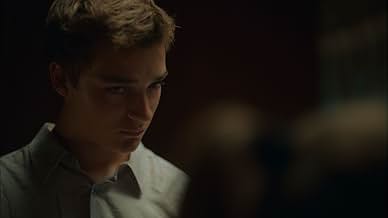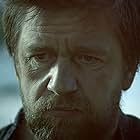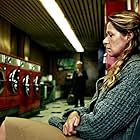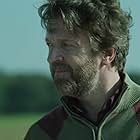After a tragic event concerning her daughter, Flo travels back in time in order to correct mistakes of the past and do what's best for her children.After a tragic event concerning her daughter, Flo travels back in time in order to correct mistakes of the past and do what's best for her children.After a tragic event concerning her daughter, Flo travels back in time in order to correct mistakes of the past and do what's best for her children.
- Awards
- 1 nomination
Browse episodes
Storyline
Featured review
It's incredible how many solid and worthwhile TV-series from my own native country of Flanders I have watched and reviewed in the past 10-12 years! I remember a time, before that, when the television offering was truly miserable, but since the number of commercial channels has increased so has the amount of qualitative output. Of course, not all series are great ("Over Water", for instance, was horrible) but many others ("Undercover", "The Day", "Thieves of the Woods", "Tabula Rasa", ...) can easily compete with prestigious international series.
"Déjà-Vu" is somewhat of an outcast. The start of the series exactly lived up to its title, and that's obviously not a good thing. It felt like another derivative story about a struggling family, complete with divorced parents, a fanatically feminist mother, and a rebellious teenager daughter with suicidal thoughts. When the girl does take her own life, the grieving mother stumbles upon a dubious company - named "Reset" - that offers its customers to travel back in time and prevent life-altering events from happening.
After two episodes, my wife and I stopped watching. My mind could easily handle the suspension of disbelief regarding the unexplained time-traveling, but the overuse of dumb clichés (abusive boyfriends, #MeToo situations, ...) and unlikeable characters didn't seem worth the effort of enduring four more episodes.
For whatever reason, we picked it up again a few months later and I'm glad we did. Halfway through the series, "Déjà-Vu" genuinely turns into a relevant drama with - according to me, at least - a couple of valuable and thought-provoking life-lessons. The mother, Flo, painfully learns that she must travel back much further in time than she initially thought to rescue her daughter Cato. I interpret this as a message that subjects like mental health and tendency towards depression are far more complicated than everyone thinks, and that the root causes cannot be found easily. The climax also marvelously suggests that resolving/preventing one trauma comes with a big price. Flo must make many sacrifices to save Cato. Some turn out positive for her and her family, whereas others ruin her career and ideologies. And perhaps the ultimate lesson remains that you can't just mess around with the higher powers of life and death.
For Flemish standards, "Déjà-Vu" has a stellar cast. Even the supportive cast is filled with familiar and talented local actors and actresses, and everyone delivers. Lead actress Natali Broods has built up an impressive career lately. She's in practically every important Belgian series of recent years, and she gives a fantastic performance here. She also manages to make her character undergo a stupendous metamorphosis. It's not the most pleasant or relaxing six hours of television, but definitely worth sitting through until the end.
"Déjà-Vu" is somewhat of an outcast. The start of the series exactly lived up to its title, and that's obviously not a good thing. It felt like another derivative story about a struggling family, complete with divorced parents, a fanatically feminist mother, and a rebellious teenager daughter with suicidal thoughts. When the girl does take her own life, the grieving mother stumbles upon a dubious company - named "Reset" - that offers its customers to travel back in time and prevent life-altering events from happening.
After two episodes, my wife and I stopped watching. My mind could easily handle the suspension of disbelief regarding the unexplained time-traveling, but the overuse of dumb clichés (abusive boyfriends, #MeToo situations, ...) and unlikeable characters didn't seem worth the effort of enduring four more episodes.
For whatever reason, we picked it up again a few months later and I'm glad we did. Halfway through the series, "Déjà-Vu" genuinely turns into a relevant drama with - according to me, at least - a couple of valuable and thought-provoking life-lessons. The mother, Flo, painfully learns that she must travel back much further in time than she initially thought to rescue her daughter Cato. I interpret this as a message that subjects like mental health and tendency towards depression are far more complicated than everyone thinks, and that the root causes cannot be found easily. The climax also marvelously suggests that resolving/preventing one trauma comes with a big price. Flo must make many sacrifices to save Cato. Some turn out positive for her and her family, whereas others ruin her career and ideologies. And perhaps the ultimate lesson remains that you can't just mess around with the higher powers of life and death.
For Flemish standards, "Déjà-Vu" has a stellar cast. Even the supportive cast is filled with familiar and talented local actors and actresses, and everyone delivers. Lead actress Natali Broods has built up an impressive career lately. She's in practically every important Belgian series of recent years, and she gives a fantastic performance here. She also manages to make her character undergo a stupendous metamorphosis. It's not the most pleasant or relaxing six hours of television, but definitely worth sitting through until the end.
- How many seasons does Déjà Vu have?Powered by Alexa
Details
- Release date
- Country of origin
- Language
- Production company
- See more company credits at IMDbPro
Contribute to this page
Suggest an edit or add missing content


























